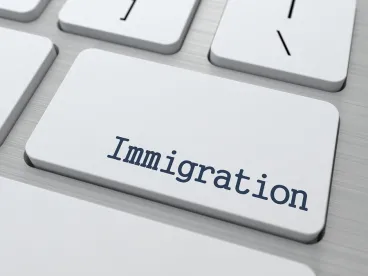The U.S. Immigration and Customs Enforcement agency (ICE) recently released statistics on its worksite enforcement activities for the federal fiscal year ending on September 30, 2018. It should surprise no one that worksite enforcement designed to crack down on the employment of undocumented aliens has skyrocketed.
In FY 2018, 6,848 worksite investigations were initiated, representing a fourfold increase from the prior fiscal year. Similarly, ICE conducted 5,981 audits of employers’ Form I-9s, which is five times the number from the prior year. Criminal and worksite arrests were also way up and readers will recall that immigration law violations are one of the few areas of employment law which can result in direct criminal prosecution.
What does this flurry of activity mean for employers? Under the Immigration Reform and Control Act of 1986, all employers must verify the identity and work eligibility of all individuals hired by completing a Form I-9 within three days of starting work. While appearing to be fairly simple on its face, many employers fail to pay attention to the details and fail to properly complete and certify that they have carefully verified the identity and work authorization of each hire. This can be especially true when hiring is done in remote locations where there are no trained management personnel to supervise the completion of the I-9.
When an employer receives a Notice of Inspection from ICE, it has three business days after which ICE will physically inspect the I-9s. Noncompliance could result in civil fines or even criminal prosecution. ICE worksite investigations are also designed to look for evidence of mistreatment of workers, human trafficking, and document fraud.
Given the reality that immigration enforcement activities are not likely to update anytime soon, employers are well-advised to take the following steps now:
-
Conduct a self-audit of all of your I-9s and if mistakes are identified take the appropriate steps to correct them. Consult the Handbook for Employers to know how the form must be completed.
-
Review and, where necessary, retrain all employees who are responsible for reviewing the documents presented by the new hire and certifying the accuracy of the form I-9.
-
Be sure you know the right way to fix errors that are identified.
-
Audit the records of any employees who are working under temporary visas. Oftentimes, employers verify work authorization at the time of hire but then fail to track expirations and renewals. What may have been legal at the time of hire may not be the case years later.




 />i
/>i
